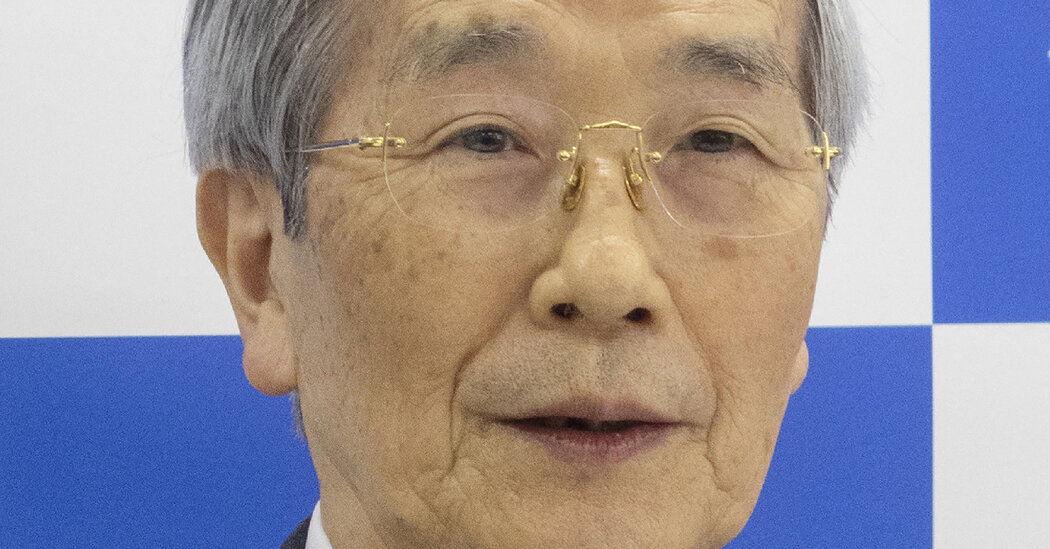Akira Endo, a Japanese biochemist whose mushroom research helped lay the foundation for widely prescribed drugs that lower a type of cholesterol that contributes to heart disease, died June 5 at age 90.
Chiba Kazuhiro, president of the Tokyo University of Agriculture and Technology, where Dr. Endo was professor emeritus, confirmed the death in a statement. The statement does not provide a cause or say where he died.
Cholesterol, produced mainly in the liver, performs important functions in the body. It is also a major contributor to coronary heart disease, a leading cause of death in the United States, Japan and many other countries.
In the early 1970s, Dr. Endo grew mushrooms in an attempt to find a natural substance that could block a crucial enzyme that is part of the production of cholesterol. Some scientists worry that this could threaten the positive functions of cholesterol.
But in 1980, Dr. Endo's team had discovered that a cholesterol-lowering drug, or statin, lowered the level of LDL, or “bad,” cholesterol in the blood. And by 1987, after other researchers in the field had published more research on statins, Merck was producing the first licensed statin.
Such drugs have been shown to be effective in reducing the risk of cardiovascular disease, and millions of people in the United States and elsewhere now take them for high LDL levels.
Akira Endo was born on November 14, 1933 in Yurihonjo, a city in a mountainous area near the Sea of Japan. His parents were farmers and he developed an interest in fungi and molds, which would influence his work as a scientist.
He worked in the rice fields by day and attended high school at night, against his parents' wishes. He was inspired in part by a desire to help farmers struggling with agricultural pests, said Kozo Sasada, spokesperson for Endo Akira Kenshokai, a group that honors Dr. Endo's legacy.
Dr Endo said his career was also inspired by a biography he read of Sir Alexander Fleming, a Scottish biologist who discovered penicillin in the 1920s.
“For me, Fleming was a hero,” Dr. Endo told Igaku-Shoin, a Japanese medical publisher, in 2014. “I dreamed of becoming a doctor as a child, but I realized a new horizon since people who are not doctors can save people's lives.” he lives and contributes to society”.
After studying agriculture at Tohoku University, he joined Sankyo, a Japanese pharmaceutical company, in the late 1950s. His first assignment was the production of enzymes for fruit juices and wines in a factory in Tokyo.
He developed a more efficient way to grow mold by applying a method he had used as a child to prepare miso and pickled vegetables, he later told M3, a website for Japanese medical professionals. His reward was a promotion to the company's microbiology and chemistry laboratory.
In the 1960s he earned a doctorate in biochemistry from Tohoku University. He also lived for a few years in New York City, where he worked as a research associate at the Albert Einstein College of Medicine.
At the time, he later told M3, he wanted to invent a cure for stroke, the leading cause of death in Japan. Strokes had claimed the lives of his father and grandparents.
“But when I went to the United States, I learned that there were many cases of heart disease, so I changed,” he said.
Back in Sankyo, he grew more than 6,000 mushrooms in the early 1970s as part of an effort to find a natural substance that could block a crucial enzyme involved in the production of cholesterol.
“I didn't know anything other than mold, so I decided to look for it in mold,” he said.
He finally found what he was looking for: a strain of penicillium, or blue mold, that, in chickens, reduced levels of an enzyme needed by cells to produce LDL cholesterol.
According to Endo Akira Kenshokai, Doctor Endo's survivors include his wife, Orie, his son, Osamu, and his daughter, Chiga. Complete information on survivors was not immediately available.
After Dr. Endo left Sankyo in the late 1970s, he worked as a professor at several Japanese universities and served as president of Biopharm Research Laboratories, a Japanese pharmaceutical company. In 2008 he received a Lasker Award, a prestigious recognition from a New York foundation, for his medical research.
Dr. Endo said in the 2014 interview that he tried to build a career solving a global problem that was not specific to Japan. He compared his work to climbing the much higher peaks of Mount Takao in Tokyo.
“If I had to climb a mountain,” he said, “Mount Everest would be better.”
Orlando Mayorquin and Gina Kolata contributed reporting.





